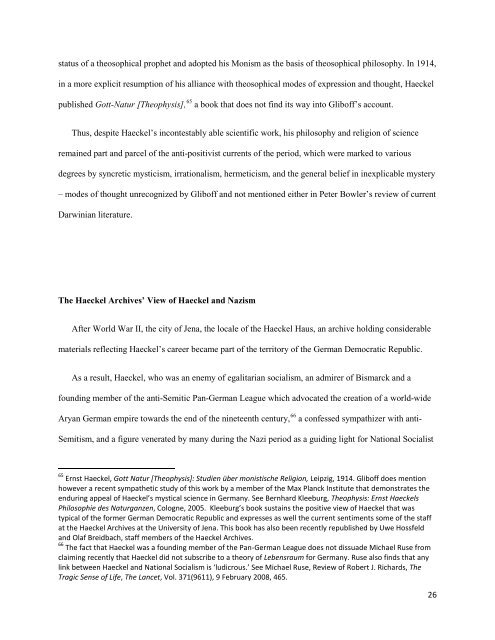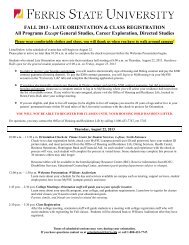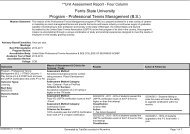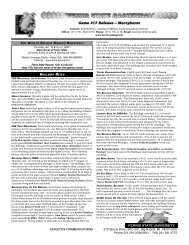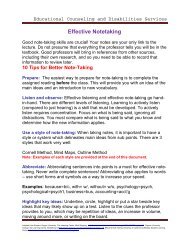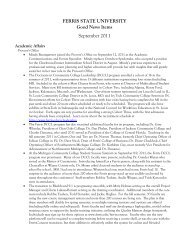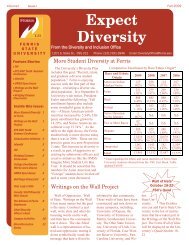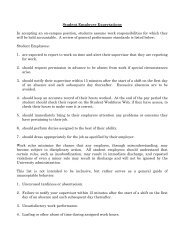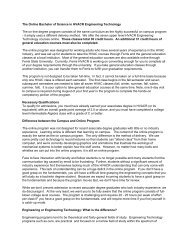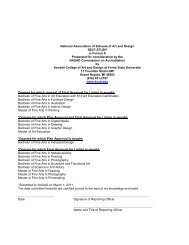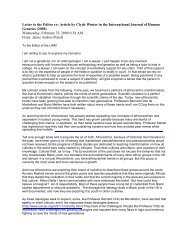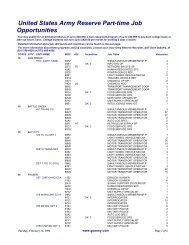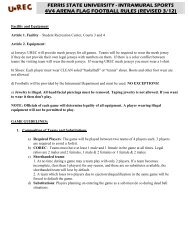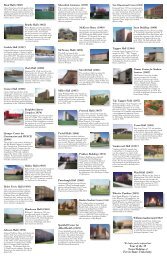Daniel Gasman - Ferris State University
Daniel Gasman - Ferris State University
Daniel Gasman - Ferris State University
Create successful ePaper yourself
Turn your PDF publications into a flip-book with our unique Google optimized e-Paper software.
status of a theosophical prophet and adopted his Monism as the basis of theosophical philosophy. In 1914,<br />
in a more explicit resumption of his alliance with theosophical modes of expression and thought, Haeckel<br />
published Gott-Natur [Theophysis], 65<br />
a book that does not find its way into Gliboff’s account.<br />
Thus, despite Haeckel’s incontestably able scientific work, his philosophy and religion of science<br />
remained part and parcel of the anti-positivist currents of the period, which were marked to various<br />
degrees by syncretic mysticism, irrationalism, hermeticism, and the general belief in inexplicable mystery<br />
– modes of thought unrecognized by Gliboff and not mentioned either in Peter Bowler’s review of current<br />
Darwinian literature.<br />
The Haeckel Archives’ View of Haeckel and Nazism<br />
After World War II, the city of Jena, the locale of the Haeckel Haus, an archive holding considerable<br />
materials reflecting Haeckel’s career became part of the territory of the German Democratic Republic.<br />
As a result, Haeckel, who was an enemy of egalitarian socialism, an admirer of Bismarck and a<br />
founding member of the anti-Semitic Pan-German League which advocated the creation of a world-wide<br />
Aryan German empire towards the end of the nineteenth century, 66<br />
a confessed sympathizer with anti-<br />
Semitism, and a figure venerated by many during the Nazi period as a guiding light for National Socialist<br />
65 Ernst Haeckel, Gott Natur [Theophysis]: Studien über monistische Religion, Leipzig, 1914. Gliboff does mention<br />
however a recent sympathetic study of this work by a member of the Max Planck Institute that demonstrates the<br />
enduring appeal of Haeckel’s mystical science in Germany. See Bernhard Kleeburg, Theophysis: Ernst Haeckels<br />
Philosophie des Naturganzen, Cologne, 2005. Kleeburg’s book sustains the positive view of Haeckel that was<br />
typical of the former German Democratic Republic and expresses as well the current sentiments some of the staff<br />
at the Haeckel Archives at the <strong>University</strong> of Jena. This book has also been recently republished by Uwe Hossfeld<br />
and Olaf Breidbach, staff members of the Haeckel Archives.<br />
66 The fact that Haeckel was a founding member of the Pan-German League does not dissuade Michael Ruse from<br />
claiming recently that Haeckel did not subscribe to a theory of Lebensraum for Germany. Ruse also finds that any<br />
link between Haeckel and National Socialism is ‘ludicrous.’ See Michael Ruse, Review of Robert J. Richards, The<br />
Tragic Sense of Life, The Lancet, Vol. 371(9611), 9 February 2008, 465.<br />
26


